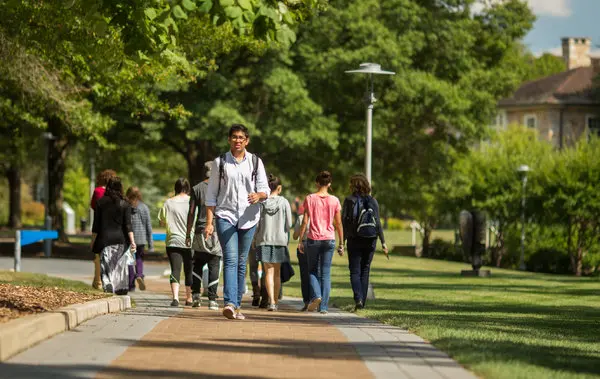Getting into an Ivy League school is hard. That’s why students are so thrilled when they’re accepted. Admissions officers are looking for a well-rounded student who will bring something unique to their college community. They don’t only look at GPAs and test scores, but also at supplementary materials like interviews and supplemental essays.
Be Yourself
Top colleges want to admit students who will make a difference in the world. That’s why they want to see a strong “spike” in the areas you truly care about. For example, Sarah aced all her science courses and got As, but she struggled with English coursework, which brought her unweighted GPA down a few points. She should have redirected her efforts and focused on the courses she enjoyed most and where she was strongest academically.
Ivy League universities value “legacies.” If you have a family member who went to their school, it helps (although they don’t necessarily admit every child with this connection). It also helps if you do your research and show interest in the college. This is a key way to make a good impression during your interview.
Be An “Expert”
As you may imagine, grades and SAT scores are important factors in Ivy League admissions. However, top colleges seek students who are “experts” in their fields of interest. This is why it’s so important to follow your passion and gain real-world experience with internships and other opportunities.
Additionally, Ivy League schools are research universities that rely on substantial endowments to provide state-of-the-art facilities and resources. As a result, they’re often “needs-blind” for US residents, meaning that students who are accepted can receive financial aid to attend. Moreover, some Ivy League colleges are known for their legacy programs, which offer additional benefits to students who have family members who attended. These benefits include access to faculty mentors, which can help you find your niche in a field.
Engage In Extracurricular Activities
A strong list of extracurricular activities can help tip the admissions tides in students’ favor, but Ivy League schools aren’t looking for a jack-of-all-trades. Instead, they want to see students immerse themselves in a particular subject and develop significant skills within that arena. In other words, quality tramples quantity. Ivy League schools are impressed by a student’s dedication to one activity, particularly when that student has taken on leadership roles and made a real difference within the organization.
In addition to community service, sports, and academic clubs, other popular choices include music, art, debate, robotics, and unpaid internships. But be careful not to overdo it, as too many activities can make an applicant seem like a resume builder rather than someone who truly cares about their passions and will carry those interests forward in college.
Get Recommendations
If you’re going to apply to Ivy League schools, you need strong recommendations. This is because Ivy League schools are very competitive, and having a holistic application goes a long way towards getting you in. Applicants should ask teachers that know them well to write letters of recommendation. Likewise, a counselor who knows an applicant can also write a strong letter. Ivy League schools want students that are engaged in their community and will help further the university’s mission. They are looking for world-changers that will drive change and lead with humility.
A great way to showcase this is through your extracurricular activities. Ivy League schools encourage students to dig deep into a subject and dedicate significant time to it. This shows a student is committed and invested in their education and their goals.
Apply Early
The college application process can be stressful, especially when you are applying to a highly selective school. You should consider applying early for admissions to reduce the stress of having all your materials ready before the deadlines. However, if you apply early, make sure that your grades and standardized test scores are top-notch. Ivy League schools are interested in applicants who show intellectual curiosity and dedication. These qualities are often demonstrated in extracurricular activities that involve passion projects, such as starting a club or taking on leadership roles in an existing one.
Moreover, Ivy League colleges expect high GPAs. A GPA of 4.0 or higher with weighted grades is ideal. The schools also look for strong SAT and ACT scores. Make sure that the teachers who write your recommendations know you well and can present a balanced picture of your academic potential.
Conclusion
Ivy League admissions are a lot like elite piano competitions. The judges look past the technical perfectionists to find those rare individuals who embody and add something unique to the music. Ivy League schools expect stellar grades (usually a weighted 4.0 or higher) and test scores. They also want to see a commitment to deep, relevant extracurriculars and the personal essay that showcases your passions, goals, and motivations.
